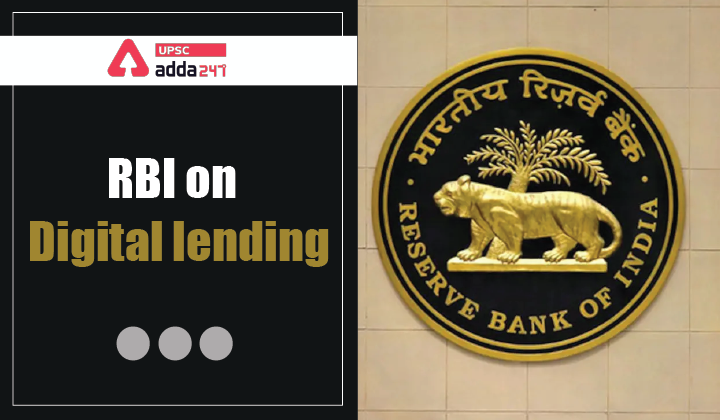Table of Contents
RBI Working Group Report on Digital Lending: Relevance
- GS 3: Indian Economy and issues relating to planning, mobilization, of resources, growth, development and employment.
RBI Working Group Report on Digital Lending: Context
- The RBI Working Group on digital lending headed by Shri Jayant Kumar Dash, Executive Director, RBI, has submitted its report, which focusses on enhancing customer protection and making the digital lending ecosystem safe and sound while encouraging innovation.
RBI Working Group Report on Digital Lending: Key points
- The Working Group (WG) was set up in the backdrop of business conduct and customer protection concerns arising out of the spurt in digital lending activities.
- The RBI Working Group has made recommendations on legal and regulatory framework, technology and financial consumer protection.
- Overall, the report seeks to safeguard consumers from unregulated digital lenders who have the potential to exploit borrowers with unfair or predatory terms.
RBI Working Group Report on Digital Lending: Why needed?
- The report is an attempt to address the concerns arising out of the spurt in digital lending activities and malpractices by certain digital lending apps.
- The recommendations aim at ensuring that customers borrow from only verified and authentic mediums.
- While the fin-tech industry had formed the Digital Lenders Association of India (DLAI) and had laid down a code of conduct to be followed to ensure self-regulation, clear guidelines from RBI were needed to help eliminate fraud apps.
RBI Working Group Report on Digital Lending: Key recommendations
- The working group recommended setting up a nodal agency, which will primarily verify the technological credentials of lenders in the digital lending ecosystem.
- It also recommended the constitution of a Self-Regulatory Organisation (SRO) covering these participants.
- SRO would aim to differentiate the good digital lenders from the bad ones.
- The group has also recommended a public register of verified apps to be maintained.
- As per findings of the working group, 600 of the 1,100 loan apps (around 50%) on Indian app stores were illegal.
- The WG also recommended that balance sheet lending through these apps should be restricted to entities regulated and authorised by RBI.
- Also, all loan servicing, repayments, etc. should be executed directly in a bank account of the balance sheet lender and disbursements should always be made into the bank account of the borrower.
- The aim is to ensure that the transaction is happening through regulated entities. It goes directly to the borrower and from borrower it comes directly to the regulated entity when repaid.
RBI Working Group Report on Digital Lending: Way forward
- Once approved, these differentiating and clear recommendations will help will eliminate loan sharks and curb unfair practices by a few that is impacting the rest of the industry.



 TSPSC Group 1 Question Paper 2024, Downl...
TSPSC Group 1 Question Paper 2024, Downl...
 TSPSC Group 1 Answer key 2024 Out, Downl...
TSPSC Group 1 Answer key 2024 Out, Downl...
 UPSC Prelims 2024 Question Paper, Downlo...
UPSC Prelims 2024 Question Paper, Downlo...





